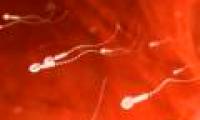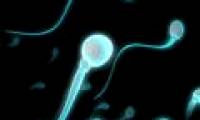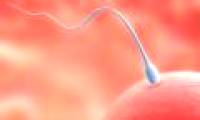
Previously, scientists used to use stem cells to make mouse sperm fully functional, developing them into healthy pups.

Spanish scientists on April 27 said they have created sperm from human skin cells, a medical feat that could eventually open the way to treating infertility.

This study has been widely regarded as a major step forward in in vitro fertilization methods, especially in the context that about 15% of couples in the world are in a situation

The future of treating infertility in men may depend on artificial sperm, according to a new study.

Scientists have succeeded in producing early-stage sperm from human skin cells. This technique opens up the prospect of helping thousands of infertile men, including those with

Japanese biologists have created mouse sperm in the laboratory by metabolizing their stem cells. From this cell, they gave birth to a very healthy group of mice.

In July 1996, the Roslin Institute in Edinburgh, Scotland, produced Dolly sheep, the first mammal to be cloned.

The world has just had a good news when human sperm has been successfully cultured in a laboratory environment.
 Previously, scientists used to use stem cells to make mouse sperm fully functional, developing them into healthy pups.
Previously, scientists used to use stem cells to make mouse sperm fully functional, developing them into healthy pups. Spanish scientists on April 27 said they have created sperm from human skin cells, a medical feat that could eventually open the way to treating infertility.
Spanish scientists on April 27 said they have created sperm from human skin cells, a medical feat that could eventually open the way to treating infertility. This study has been widely regarded as a major step forward in in vitro fertilization methods, especially in the context that about 15% of couples in the world are in a situation
This study has been widely regarded as a major step forward in in vitro fertilization methods, especially in the context that about 15% of couples in the world are in a situation The future of treating infertility in men may depend on artificial sperm, according to a new study.
The future of treating infertility in men may depend on artificial sperm, according to a new study. Scientists have succeeded in producing early-stage sperm from human skin cells. This technique opens up the prospect of helping thousands of infertile men, including those with
Scientists have succeeded in producing early-stage sperm from human skin cells. This technique opens up the prospect of helping thousands of infertile men, including those with Japanese biologists have created mouse sperm in the laboratory by metabolizing their stem cells. From this cell, they gave birth to a very healthy group of mice.
Japanese biologists have created mouse sperm in the laboratory by metabolizing their stem cells. From this cell, they gave birth to a very healthy group of mice. In July 1996, the Roslin Institute in Edinburgh, Scotland, produced Dolly sheep, the first mammal to be cloned.
In July 1996, the Roslin Institute in Edinburgh, Scotland, produced Dolly sheep, the first mammal to be cloned. The world has just had a good news when human sperm has been successfully cultured in a laboratory environment.
The world has just had a good news when human sperm has been successfully cultured in a laboratory environment.


 NASA's 'Ninth Planet' Shows Signs of Being Friendly to Life
NASA's 'Ninth Planet' Shows Signs of Being Friendly to Life Why did American astronauts have to be quarantined when returning to Earth?
Why did American astronauts have to be quarantined when returning to Earth? China surprises the world by building a cable-stayed bridge 'above the clouds'
China surprises the world by building a cable-stayed bridge 'above the clouds' Why do women sleep less and wake up more than men?
Why do women sleep less and wake up more than men? Revealing the secret inside the stuffed animal claw machine, from there, summarizing experience to help you increase your winning rate many times over
Revealing the secret inside the stuffed animal claw machine, from there, summarizing experience to help you increase your winning rate many times over What would happen if you dug a hole through the Earth and jumped in?
What would happen if you dug a hole through the Earth and jumped in? Camera takes a photo that lasts 1,000 years
Camera takes a photo that lasts 1,000 years Was there nuclear war in ancient times?
Was there nuclear war in ancient times?